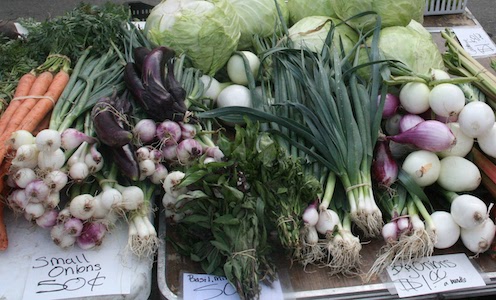
Online Direct Sales: Part 1
Today’s blog is the first in a four-part series on options and strategies for online direct sales of local farm products. In this edition, I will focus on more traditional “distanced” direct sales outlets and other “easy” online sales options. Specifically, community supported ag (CSA) programs and web-based or email options, such as google forms.
CSA’s are not new to the portfolio of direct market outlets. They have been popular for over two decades. However, the majority of these programs now handle customer sign-ups, payments, and communications online. Hence, they are well suited for today’s climate. If you are not familiar with CSA programs, they entail one or more farmers working together to supply a weekly basket or box of fresh produce to customers across a season, usually 16 to 20 weeks. Many programs also have egg or meat share add-ons, or in some cases egg and livestock producers have stand-alone programs. CSA customers pay for their weekly box in advance of the season, which allows producers to receive income early in the season. Customers pick up their box/basket weekly at a designated location. Some programs deliver directly to their customers for an additional fee. CSA boxes contain whatever products are available in that week and thus are very seasonal. For more detailed info on CSA’s see: https://www.localharvest.org/csa/ and https://www.nal.usda.gov/afsic/community-supported-agriculture.
In Utah, we have a number of long running CSA programs, check out the CSA Utah website for examples. Nationwide, consumer interest and subscription to these programs has jumped dramatically due to concerns about food availability and potential contamination in the food supply as a result of COVID-19 (Community Supported Agriculture Is Surging Amid the Pandemic). Some CSA programs have seen increased subscriptions as high as 300% as customers view local foods as safer, nutritious, and more reliable. For those of you who do not operate or participate in a CSA program, this outlet is a very viable option for you. In fact, due to the surge in consumer demand for these programs, current programs are seeking additional farmer involvement to cover orders. I would encourage you to contact CSA programs in your area to see if they need additional farmer partners, or products. These farmers will also have a wealth of information on the “how to” of CSA programs.
For those of you looking to start your own CSA or other type of online sales option, but would like to keep things simple, here are some ideas. If you currently have a website you can add a google forms order sheet to your website, or simply email it out to a customer list serve. For information on setting up a google form, see: https://smallbusiness.chron.com/build-order-forms-google-docs-48768.html. You can then take payments through your website via Square or Paypal for example (see: https://squareup.com/us/en) or just collect cash/checks when customers pick up their weekly box/basket. Keep in mind that google forms don’t track inventory, so you’ll need to track your inventory as orders come in. Additionally, some customers may not be comfortable ordering online and thus, the option to call in orders would be helpful. Providing pick up options on more than one day or at more than one location is also suggested. Also, current regulations regarding health and safety while aggregating and boxing shares, as well as during customer pick-up should be followed. They may require employees to wear gloves and masks, place boxed items directly into the customer’s car, etc. Check with your local and state health and agriculture departments for guidance.
Obviously, setting up an online store of your own or working with an established store are also options. I will discuss these options in detail in next week’s blog.
That is all for now. Please see an updated list of resources below.
Stay healthy!
Kynda Curtis, USU Extension Ag and Food Marketing Specialist
kynda.curtis@usu.edu
Marketing In Motion Blogs
Online workshops, courses, webinars, and podcasts:
- Western SARE Fresh Growth Podcasts
- Women in Ag Indiana, Online Marketing Strategies with Low Budgets Webinar Series
- The University of Vermont Cultivating Healthy Communities Webinar Series
Food system updates and articles:
Other resources:
- USDA Coronavirus Food Assistance Program
- USU Extension COVID-19 Resources
- UDAF Utah’s Own Program
- Taxes and Federal Programs
- Salt Lake City Food Access Resources
- National Center for Appropriate Technology (ATTRA) Sustainable Agriculture

